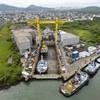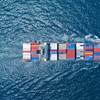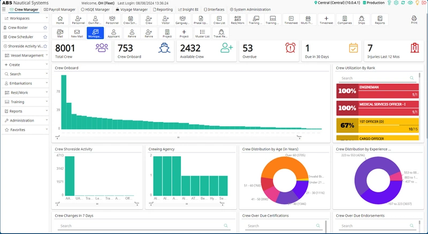Today the Council of the EU approved the twin-track strategy proposed by the European Commission to counter unfair Korean practices in the shipbuilding sector. The EU has set a deadline of the end September to resolve the dispute amicably, failing which it will immediately launch procedures for a Panel against Korea in WTO and activate a temporary defensive mechanism (TDM) for European shipbuilding. The Commission will now hold a series of further negotiations with Korean authorities in an attempt to restore normal trading practices in this sector.
Welcoming the decision, EU Trade Commissioner Pascal Lamy said "Korea now knows that if we fail to resolve this dispute in the few weeks between now and the end of September, we will take them to the WTO and provide the opportunity for our industry to benefit from temporary support for the period during which the case is heard. This time Korea knows it is for real"
Competition Commissioner Mario Monti underlined: "This is of course not a reintroduction of the generalized operating aid of up to 9% for all shipbuilding activities a regime which was definitively abolished at end 2000. If activated under the conditions set out in the Regulation, the support under our temporary defensive mechanism will be strictly limited in scope, time and also aid intensity to a maximum of 6%, as proposed by the Commission, rather than the 14% originally envisaged."
Enterprise Commissioner Erkki Liikanen said, "European ship yards are suffering as the world shipbuilding market faces serious difficulties, while Korea continues to price ships below cost. I welcome today's decision by the Council. It clarifies our position and I hope that it will allow us to move quickly forward towards reaching an agreement with Korea to correct this unfairness."
In an effort to help the Council of Ministers overcome the long-standing stalemate over the twin-track strategy against unfair Korean practices (the Commission tabled its proposal in July 2001), the Commission suggested certain modifications to its original proposal for a Regulation. These amendments were taken on board by the Presidency thereby enabling the Council to reach the necessary qualified majority.
The result is that the Commission will, no later than 30 September, report to the Council on the progress of negotiations with Korea. If, at this stage, the negotiations have not proved to be successful, the Commission will trigger its twin-track strategy:
a) the launch of a WTO Panel against Korea's unfair trade practices in the shipbuilding sector , and
b) the temporary and limited authorisation of State aid, the so-called TDM.
The principal provisions of the temporary defensive mechanism are the following:
Maximum aid intensity of 6% of contract value;
Scope covering container ships; product and chemical tankers and Liquefied Natural Gas (LNG) tankers;
Authorization of aid in the first two segments after the Commission gives notice in the Official Journal that it has launched the WTO procedure against Korea (which depends upon the assessment by the Commission of an unsuccessful outcome of the bilateral negotiations with Korea);
Entry into effect of the possibility to grant aid to LNG carriers on the basis of a new Commission investigation under the Trade Barriers Regulation (TBR) covering the full year 2002, confirming that Community yards building this type of ship suffer material injury and serious prejudice, caused directly by unfair Korean practices;
Expiry of the Regulation: 31 March 2004to take account of the time necessary for a WTO panel to reach its conclusions, i.e. 18 months from the end of September.
In a statement to the Council, the Commission promised to report to the next Industry Council on the latest developments regarding the negotiating process and on the situation in world shipbuilding.
As regards the further investigations covering the period of 2002, the Commission made clear that it is committed to launching the TBR questionnaires to industry already in early December 2002. On the basis of the replies by the industry, the Commission expects to present the result of this further investigation at the beginning of 2003 and no later than in the course of March 2003.
Featured videos

Taking the First Step Toward Autonomy
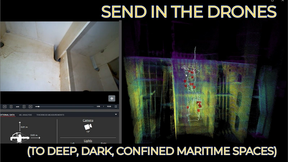
Send in the Drones (to deep, dark, confined maritime spaces)
October 2024
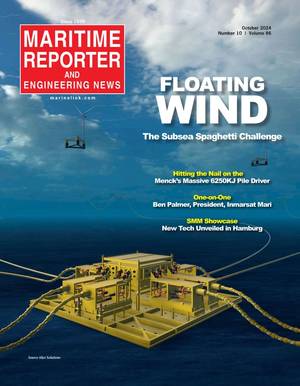 Read the Magazine
Read the Magazine

 Read the Magazine
Read the Magazine
This issue sponsored by:

Cyber Threats to Maritime Vessels Grow Exponentially
Subscribe for
Maritime Reporter E-News
Maritime Reporter E-News is the maritime industry's largest circulation and most authoritative ENews Service, delivered to your Email five times per week



